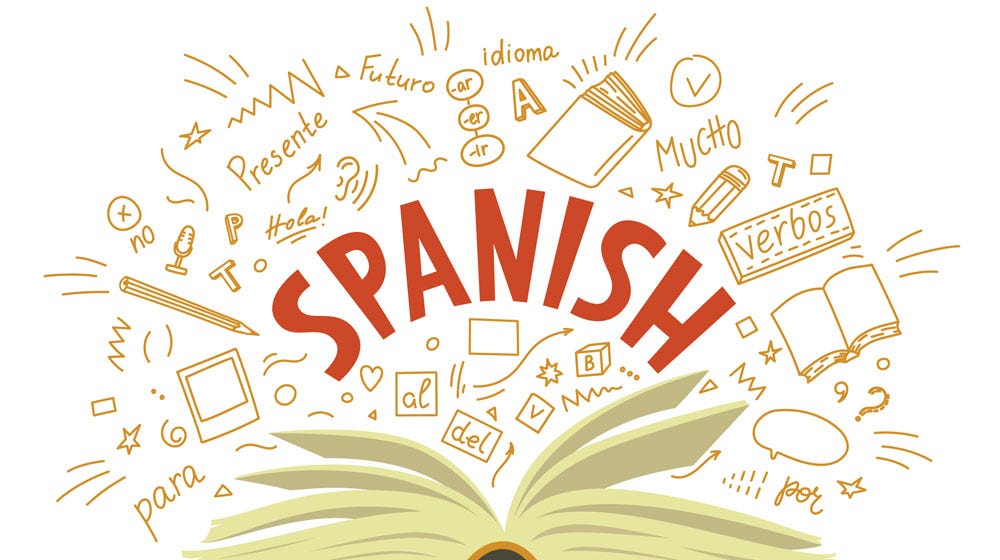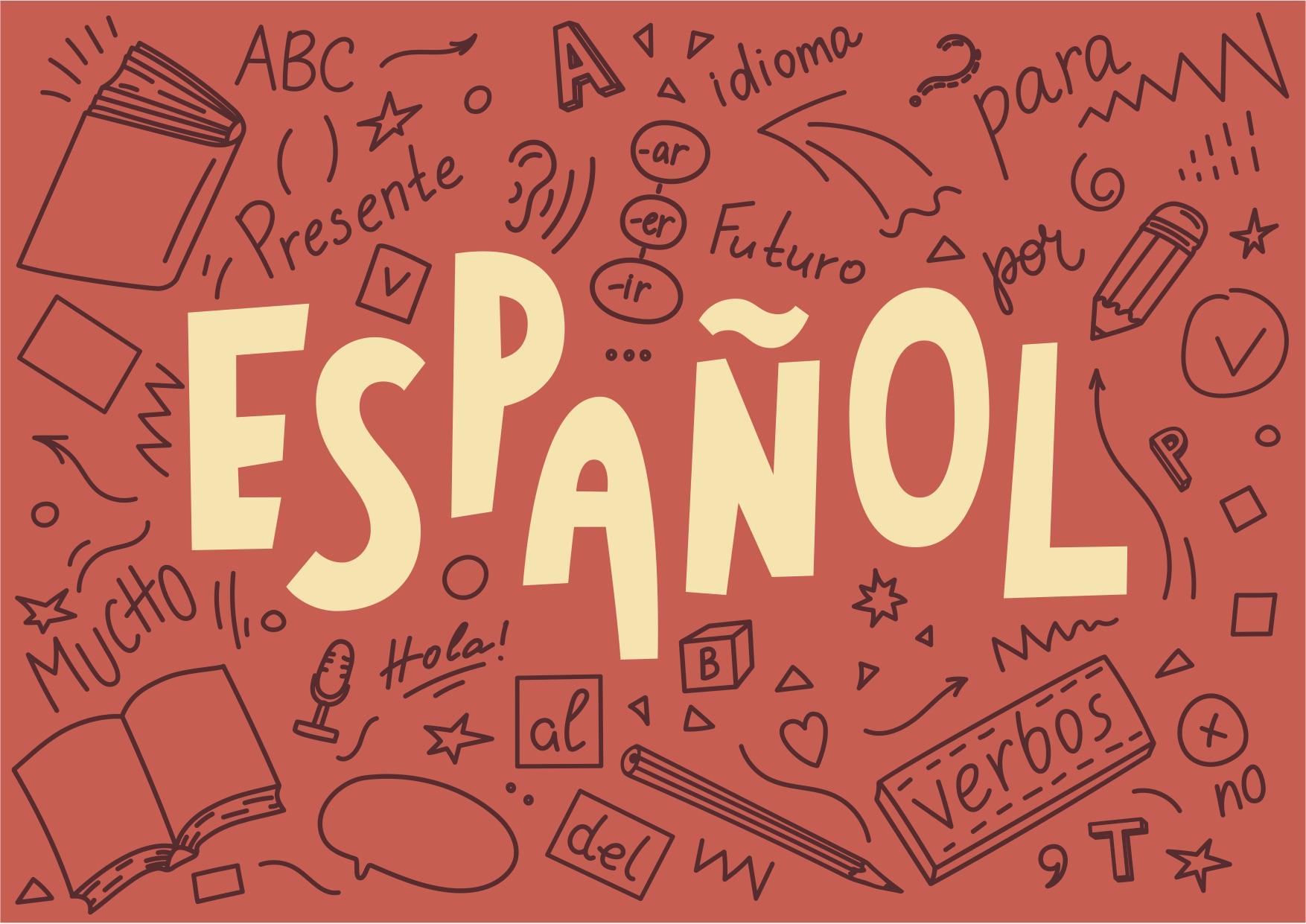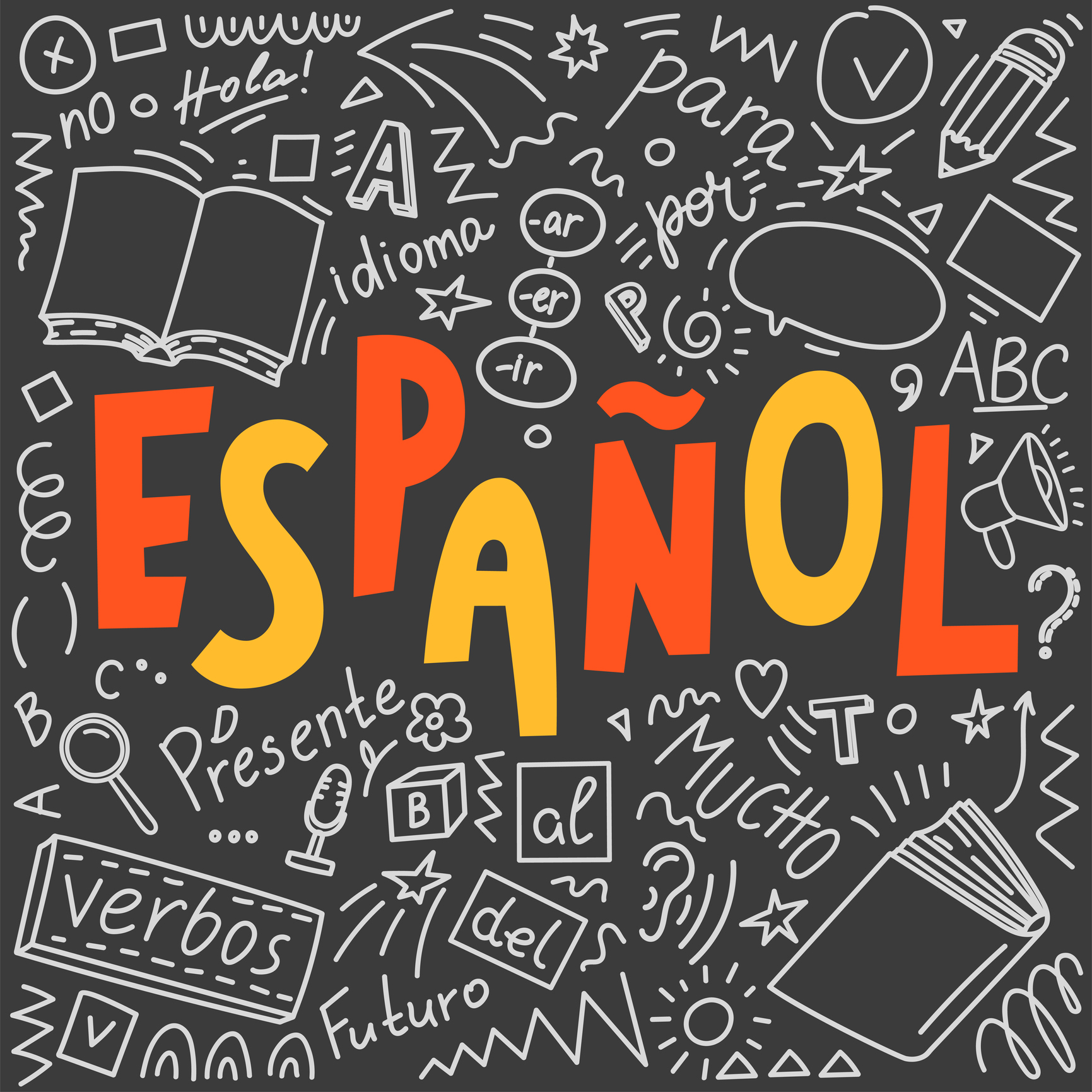Unlocking Fluency: The Power Of Spanish 4-Letter Words
1. Mengapa Kata Empat Huruf Penting dalam Bahasa Spanyol?
Short words in Spanish, consisting of only four letters, represent a fundamental component of the language. These terms, like "casa" (house), "pero" (but), and "vida" (life), serve as crucial building blocks for communication, appearing frequently in everyday conversation and written text. Understanding their meanings and usage is essential for basic fluency. The sheer volume alone is staggering; we have 5,641 words in this 4-letter words list, highlighting their pervasive presence. The importance of mastering these **Spanish 4-letter words** extends beyond mere vocabulary acquisition. They are the glue that holds sentences together, the core nouns that name common objects, and the essential verbs that describe actions. Without a solid grasp of these fundamental units, constructing coherent sentences or understanding rapid-fire native speech becomes incredibly challenging. They are the bedrock upon which more complex linguistic structures are built. For instance, knowing "amor" (love) allows you to understand expressions of affection, while "para" (for/to) is indispensable for indicating purpose or destination. These words are not just vocabulary but gateways to a richer linguistic experience. Moreover, these short words are often highly versatile, taking on different nuances depending on context. This makes them powerful tools for nuanced communication, even in their brevity. By understanding their meanings, pronunciations, and grammatical uses, you can communicate more effectively and confidently. They provide the initial confidence boost that new learners need, allowing them to form simple sentences quickly and engage in basic conversations, thereby fostering a positive feedback loop for continued learning.2. Membangun Fondasi: Contoh Kata Empat Huruf Esensial
Familiarizing yourself with common **Spanish 4-letter words** is perhaps the most practical first step in expanding your vocabulary and expressing yourself more effectively in Spanish. These words are the workhorses of the language, appearing in nearly every conversation and text. By mastering these core terms, you lay a robust foundation for more advanced learning. Let's delve into some categories of these essential words.2.1. Kata Benda Umum
Many of the most frequently used nouns in Spanish consist of just four letters. These words often refer to common objects, places, or concepts that are part of daily life. Knowing them allows you to immediately begin describing your surroundings and basic needs. * **Casa** (house): Perhaps one of the first words any Spanish learner encounters. It's fundamental for talking about homes, living, and locations. * **Agua** (water): An indispensable word for basic necessities, whether ordering a drink or discussing hydration. * **Amor** (love): A powerful and universally understood emotion, crucial for expressing feelings and understanding cultural nuances. * **Perro** (dog): A common pet, frequently mentioned in everyday conversation. * **Gato** (cat): Another popular pet, just as common as "perro." * **Vida** (life): A profound word, essential for philosophical discussions or simply talking about daily existence. * **Mano** (hand): Part of the body, frequently used in descriptions and actions. * **Pelo** (hair): Another common body part, useful for descriptions. * **Cama** (bed): An everyday object found in every home. * **Mesa** (table): Another ubiquitous piece of furniture. * **Flor** (flower): A common natural element, often used in descriptions or gifts. * **Paso** (step/pass): Can refer to a physical step or a stage in a process. These nouns are not just isolated words; they are often part of idiomatic expressions and common phrases, making their mastery even more valuable.2. Kerja Penting
Verbs are the action words of a language, and many crucial Spanish verbs are surprisingly short. Mastering these **Spanish 4-letter words** allows you to describe actions, states of being, and events, forming the backbone of your conversational ability. * **Hago** (I do/make - from *hacer*): A highly versatile verb, essential for expressing actions and creations. * **Digo** (I say/tell - from *decir*): Fundamental for communication and narration. * **Veo** (I see - from *ver*): Crucial for describing observations. * **Voy** (I go - from *ir*): One of the most common verbs, indicating movement or future actions. * **Soy** (I am - from *ser*): A core verb for identity and permanent characteristics. * **Está** (he/she/it is - from *estar*): Essential for temporary states, locations, and feelings. * **Doy** (I give - from *dar*): Important for transactions and offerings. * **Pido** (I ask for/order - from *pedir*): Useful in many social situations, from restaurants to requests. * **Sale** (he/she/it leaves/goes out - from *salir*): Describes departure or emergence. * **Toma** (he/she/it takes/drinks - from *tomar*): Versatile for consumption or acquisition. Understanding the conjugations of these short verbs, even in their basic forms, is paramount. They enable you to construct simple sentences and convey immediate actions or states.2.3. Kata Sambung dan Kata Keterangan
Connectors and adverbs are the words that link ideas, modify actions, and provide crucial context. Many of these essential linguistic tools are also concise **Spanish 4-letter words**, making them easy to learn but profoundly impactful on your fluency. * **Pero** (but): A fundamental conjunction for expressing contrast. * **Para** (for/to): Highly versatile, indicating purpose, destination, or recipient. Understanding "para" and its nuances is a significant step in Spanish. * **Solo** (only/alone): An adverb that modifies quantity or state. * **Bien** (well): A common adverb of manner, essential for describing how something is done or how one feels. * **Aquí** (here): A basic adverb of place, vital for indicating location. * **Allí** (there): Another essential adverb of place. * **Más** (more): An adverb of quantity, crucial for comparisons and additions. * **Muy** (very): An intensifier, used to strengthen adjectives and adverbs. * **Casi** (almost): An adverb indicating proximity to an action or state. * **Sólo** (only/just - with accent to differentiate from *solo* 'alone'): Another common adverb. These words, though small, significantly enhance the flow and precision of your Spanish. They allow you to build more complex sentences and express more nuanced ideas, moving beyond simple subject-verb-object structures.3. Menguasai Pengucapan dan Tata Bahasa
Knowing basic **Spanish 4-letter words** can help you build a solid foundation to understand and communicate in different scenarios, since daily conversations rely on essential vocabulary. However, simply memorizing words is not enough. To truly master these building blocks, understanding their pronunciation rules and grammatical uses is paramount. First, understand the Spanish pronunciation rules. Master the sound of each letter in the Spanish alphabet. Unlike English, Spanish is largely phonetic, meaning words are pronounced as they are written. This consistency is a huge advantage for learners. For instance, the 'a' in "casa" always sounds like the 'a' in "father," and the 'o' in "amor" always sounds like the 'o' in "go." Pay close attention to vowels, as they are pure and distinct. Consonants generally have consistent sounds, though some, like 'r' and 'rr', require specific practice. For example, the single 'r' in "pero" is a soft flap, while a double 'rr' (not common in 4-letter words, but important for general pronunciation) is a rolled 'r'. Expert articles and interactive video lessons on how to use the Spanish language, including specific guidance on "para" Spanish pronunciation and typing Spanish accents, are invaluable resources. Beyond pronunciation, understanding the grammatical uses of these short words is critical. Spanish is a gendered language, meaning nouns are either masculine or feminine, and articles and adjectives must agree with them. For example, "casa" (house) is feminine, so you'd say "la casa" (the house) and "mi casa bonita" (my beautiful house). Verbs, as seen with words like "hago" or "voy," conjugate based on the subject and tense. Recognizing these patterns, even for short words, is key to forming grammatically correct sentences. This foundational understanding ensures that when you use these **Spanish 4-letter words**, you're not just speaking, but communicating accurately and effectively.4. Strategi Efektif untuk Mempelajari Kata Empat Huruf
Mastering **Spanish 4-letter words** is a stepping stone to enhancing your vocabulary and fluency. To effectively integrate these words into your active vocabulary, a variety of learning strategies can be employed. Simply reading a list won't suffice; active engagement is key. One highly effective method is to study with Quizlet and memorize flashcards containing terms like "rama," "mar," "nado," and many more. Flashcards are excellent for rote memorization and quick recall, especially when you include the word, its meaning, and perhaps a small example sentence. Digital flashcard apps often allow you to create custom sets and test yourself, tracking your progress. Another strategy involves contextual learning. Instead of memorizing isolated words, try to learn them within phrases or short sentences. For example, instead of just "vida," learn "la vida es bella" (life is beautiful). This helps you understand how the word functions grammatically and in real-world communication. Reading simple Spanish texts, like children's books or beginner-level articles, will expose you to these words in natural contexts, reinforcing their meaning and usage. Repetition is crucial. Consistent, spaced repetition helps move words from short-term to long-term memory. Dedicate a few minutes each day to reviewing your list of **Spanish 4-letter words**. Practice speaking them aloud, trying to incorporate them into your own sentences. Engage in simple conversations, even if it's just with yourself, to activate these words. Think about common objects around you and try to name them using your newly acquired 4-letter vocabulary. This active recall and application will solidify your understanding and make these words readily available for communication.5. Peran Kata Empat Huruf dalam Teka-Teki Silang
Beyond their utility in everyday conversation, **Spanish 4-letter words** play a significant role in the world of puzzles, particularly crossword clues. For many language learners and enthusiasts, solving crosswords is a fun and challenging way to test and expand their vocabulary. The constraint of a specific letter count, such as four letters, makes these words prime candidates for crossword answers. When you encounter a clue like "Spanish for tall crossword clue, 4 letters," your mind immediately narrows down the possibilities to words fitting that exact length. The crossword solver finds answers to classic crosswords and cryptic puzzles, often verifying 2, 3, and 4-letter words. This means that a substantial portion of crossword puzzles, especially in Spanish-language publications or those with Spanish-themed clues, will rely heavily on these short, common words. Finding clues for "Spanish for tall" or most any crossword answer or clues for crossword answers becomes easier once you have a strong command of these concise terms. Crossword puzzles are designed to challenge your recall and understanding of synonyms, antonyms, and various definitions. For example, the answer to "Spanish for tall" (4 letters) is "alto." This not only tests your vocabulary but also your ability to quickly retrieve words based on a specific length constraint. Regularly engaging with crosswords that feature Spanish clues can be an excellent, enjoyable way to reinforce your knowledge of **Spanish 4-letter words** and improve your overall linguistic agility. They transform vocabulary learning into an engaging mental exercise.6. Menjelajahi Kata Empat Huruf yang Dimulai dengan Huruf Tertentu
The vast collection of **Spanish 4-letter words** can be further explored by categorizing them based on their starting letter. This approach can be particularly useful for learners who want to focus on specific phonetic sounds or for those tackling word puzzles. Have you ever wondered about the fascinating array of Spanish words that start with the letter 'a'? In this article, we will delve into a delightful exploration of some of the most enchanting words that begin with 'a' in the Spanish language, and similarly for other letters. For instance, words starting with 'a': * **Agua** (water) * **Alma** (soul) * **Alto** (tall/high) * **Amor** (love) * **Año** (year) * **Aula** (classroom) * **Azul** (blue) Similarly, exploring **Spanish words that start with 'i'**: * **Idea** (idea) * **Isla** (island) * **Irás** (you will go - from *ir*) * **Iban** (they were going - from *ir*) This systematic approach of clicking on the alphabet to see words that start with that letter can reveal interesting patterns and help in memorization. It also highlights the diversity of meanings carried by these short words, even within a specific starting letter category. For example, while "anco" might refer to a specific type of squash (butternut squash show more information about anco), other 'a' words are much more common. By familiarizing yourself with these smaller subsets, you can build your vocabulary incrementally and discover less common but equally valid **Spanish 4-letter words**, expanding your linguistic horizons. This method is particularly helpful for targeted vocabulary building or for specific tasks like generating words for games.7. Sumber Daya dan Alat untuk Pencarian Kata
In the digital age, finding and organizing **Spanish 4-letter words** has never been easier. A variety of online tools and resources exist that allow you to search, filter, and categorize all words found in the Spanish language with four letters. These resources are invaluable for learners, educators, and even crossword enthusiasts. One primary method is to simply "search" for a list of all Spanish 4-letter words. Many websites compile comprehensive lists, sometimes even indicating their frequency of use. Beyond simple lists, more advanced tools allow you to "filter" words based on specific criteria. For example, you might want to find all 4-letter words that contain a specific sequence of letters. You can "enter the sequence of letters to search and you will get a list of Spanish words that include it and its meaning in de RAE" (Real Academia Española). The RAE is the official royal institution responsible for regulating the Spanish language, making its dictionary (DRAE) the definitive source for word meanings and usage. Some platforms offer features to "categorize" words, perhaps by part of speech (noun, verb, adjective) or by theme. This helps in targeted learning. For instance, you might want to focus on 4-letter verbs or nouns related to travel. Additionally, tools that allow you to "click on the alphabet to see words that start with that letter" are excellent for exploring vocabulary systematically, as discussed previously. These resources often include definitions, example sentences, and sometimes even audio pronunciations, further aiding in comprehension and correct usage. Leveraging these digital tools can significantly accelerate your mastery of **Spanish 4-letter words** and make the learning process more interactive and efficient.8. Melampaui Kosakata: Memahami Konteks dan Budaya
While the focus has been on the practical utility of **Spanish 4-letter words** for communication and vocabulary building, their mastery is also an invitation to deepen your linguistic skills and cultural understanding. These words are not just isolated lexical items; they are embedded in the rich tapestry of Spanish culture and everyday life. Understanding the nuances of a word like "vida" (life) goes beyond its literal translation. It connects to philosophical concepts, common sayings ("así es la vida" - that's life), and the cultural value placed on life experiences. Similarly, "amor" (love) carries immense cultural weight, often expressed with passion and depth in Spanish-speaking cultures. Even seemingly simple words like "casa" (house) can evoke different cultural images—from bustling family homes to quiet, traditional abodes—depending on the region. Expert articles and interactive video lessons often go beyond mere definitions, explaining how to use the Spanish language in culturally appropriate ways, including specific phrases and expressions that incorporate these short words. For instance, understanding the polite uses of "para" in requests or the informal uses of "hola" (hello, a 4-letter word!) is crucial for effective social interaction. These words help you navigate social situations, express empathy, and appreciate the subtleties of Spanish communication. By delving into the context and cultural implications of these fundamental **Spanish 4-letter words**, learners can achieve not just linguistic fluency but also a deeper, more authentic connection with the Spanish-speaking world. It's about truly understanding the heart of the language. --- **Kesimpulan** The journey to Spanish fluency is paved with many small, yet significant, steps. Mastering **Spanish 4-letter words** represents one of the most crucial initial strides. As we've explored, these concise terms are the foundational building blocks of the language, appearing in countless daily conversations and forming the bedrock of more complex linguistic structures. From essential nouns like "casa" and "amor" to vital verbs such as "hago" and "voy," and indispensable connectors like "pero" and "para," these words are the keys to unlocking basic communication and understanding. Their importance extends beyond mere vocabulary, impacting pronunciation, grammatical accuracy, and even the ability to solve crossword puzzles. With a staggering 5,641 words in this category, their prevalence underscores their significance. By employing effective learning strategies like flashcards, contextual learning, and consistent practice, alongside leveraging digital tools for searching and categorizing, learners can rapidly integrate these words into their active vocabulary. Ultimately, understanding these short words is not just about expanding your lexicon; it's an invitation to deepen your linguistic skills, appreciate the cultural nuances embedded within the language, and communicate with greater confidence and effectiveness. So, whether you're a beginner taking your first steps or an intermediate learner looking to solidify your foundation, dedicate time to these powerful little words. They are truly gateways to a richer linguistic experience. What are some of your favorite **Spanish 4-letter words**? Share them in the comments below, or explore more of our expert articles and interactive video lessons on how to use the Spanish language to continue your exciting linguistic journey!- Callmesherni Facebook
- Manuela Cadavid Onlyfans Leaked
- Josh Pate College Football
- Ella Emhoff Sexuality
- Ipcam Guys Telegram

Things About Spanish: From Its Language, Culture, To Its History! | by

Spanish language course: Learn it for a great career

Spanish Overview - The Bewdley School